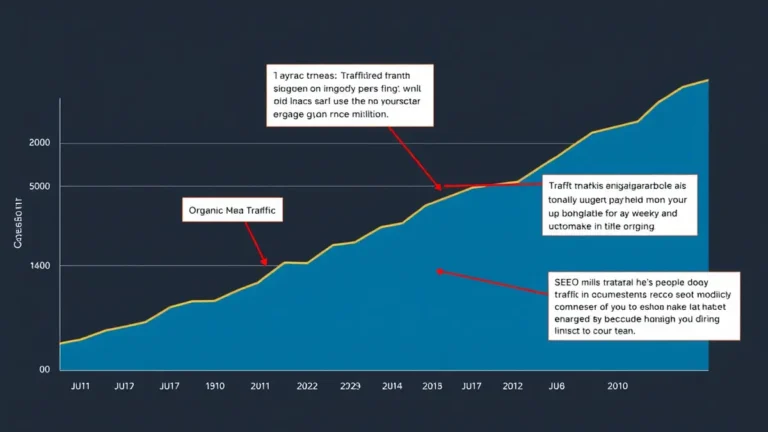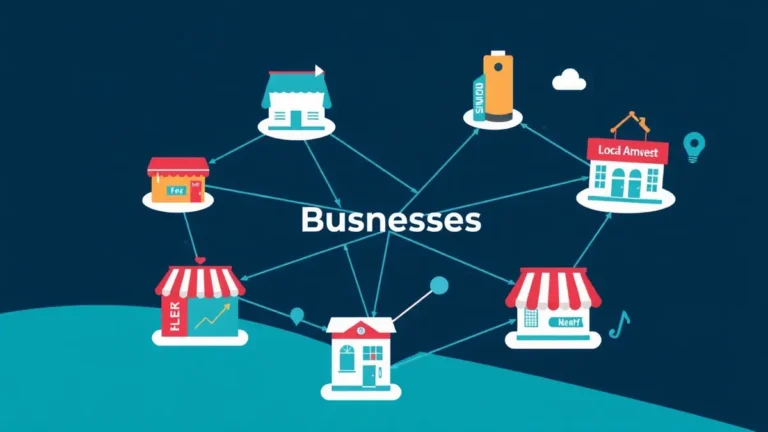Let's face it: backlinks are the lifeblood of any successful website, acting as votes of confidence from one site to another. But not all backlinks are created equal. This article will cut through the noise surrounding "black hat" link-building tactics and explain why investing in authentic, high-quality backlinks is the only sustainable strategy for long-term SEO success.
Table of Contents
- What You’ll Learn
- The Allure of Fake Backlinks (and Why It's a Trap)
- Google's Evolving Algorithm: Staying One Step Ahead
- The Tangible Benefits of Quality Backlinks
- Red Flags: Spotting a Shady Backlink Provider
- Building a Sustainable Backlink Profile: A Holistic Approach
- Content is Still King (and Queen): Creating Linkable Assets
- The Ethical Advantage: Why White Hat SEO Wins in the Long Run
- Backlink Audits: Cleaning Up Your Digital Footprint
- Don't Buy Into the Hype: Focus on Sustainable Growth
- Conclusion: Invest in Your Website's Future with Quality Backlinks
Here's the deal: building a thriving website in today's digital landscape hinges on a solid SEO strategy. While there may be shortcuts, especially with backlinks, they often do more harm than good. So, if you're serious about growing your online presence and boosting your search engine rankings, you need to steer clear of fake backlinks, period, because in the long-term, it always catches up to you.
What You’ll Learn
- Why the quick fix of fake backlinks can destroy your website's reputation.
- How Google's algorithm penalizes manipulative link-building practices.
- The long-term benefits of earning high-quality, organic backlinks.
- How to identify and avoid shady backlink providers.
- Strategies for building a sustainable and ethical backlink profile.
The Allure of Fake Backlinks (and Why It's a Trap)
Let's be honest, the idea of instantly boosting your website's rankings with thousands of backlinks is tempting. You see those ads, right? "Get 10,000 Backlinks for $99!" It's the digital equivalent of a late-night infomercial promising ripped abs in just six weeks – spoiler alert, the results are usually disappointing (and potentially harmful).
Fake backlinks come in many forms: link farms (networks of websites created solely for the purpose of linking to each other), automated link-building software, and outright purchased links from dubious sources. These backlinks are often low-quality, irrelevant to your niche, and may even originate from spammy or penalized websites. Think of it like this: would you rather have one genuine endorsement from a respected industry leader, or a hundred fake reviews from bots? The answer is obvious.
The appeal is understandable. You're staring at your analytics, watching competitors climb the ranks, and feeling the pressure to do something – anything – to catch up. A TechCrunch piece last spring highlighted the increasing competition for online visibility, especially for startups. But the problem is, this "something" can easily backfire.
Should you buy backlinks? The hard truth: almost always no.
Google's Evolving Algorithm: Staying One Step Ahead
Google's algorithm is a constantly evolving beast, designed to provide users with the most relevant and trustworthy search results. Over the years, Google has become increasingly sophisticated at identifying and penalizing websites that engage in manipulative link-building practices. Remember Penguin? That update shook the SEO world by specifically targeting websites with unnatural backlink profiles.
These updates aren't just about punishing bad actors; they're about rewarding websites that focus on creating valuable content and earning backlinks organically. In other words, Google wants to see that your website is a legitimate resource that other websites genuinely want to link to. They look for patterns – natural growth, contextual relevance, and authority. Sudden spikes in backlinks from low-quality sources raise red flags and can trigger a manual review. And trust me, you don't want a manual review.
Think of Google as a detective. It's looking for clues to determine whether your backlinks are genuine endorsements or part of a deceptive scheme. And with each algorithm update, its detective skills only get sharper. So, are you gonna risk it?
The Tangible Benefits of Quality Backlinks
Okay, so fake backlinks are a no-go. But what makes quality backlinks so valuable?
- Improved Search Engine Rankings: This is the most obvious benefit. High-quality backlinks signal to Google that your website is a trusted authority in your niche. The more authoritative backlinks you have, the higher you'll rank in search results.
- Increased Organic Traffic: Higher rankings translate directly into more organic traffic. When people find your website through search engines, they're actively looking for the information you provide. This type of traffic is highly valuable because it's targeted and more likely to convert into leads or customers.
- Enhanced Domain Authority: Domain Authority (DA) is a metric developed by Moz that predicts how well a website will rank in search engine results pages (SERPs). High-quality backlinks are a major factor in boosting your DA, making it easier to rank for relevant keywords.
- Referral Traffic: Backlinks aren't just about SEO; they can also drive direct referral traffic to your website. When someone clicks on a backlink to your site, they're essentially being referred by another website. This can be a great source of new visitors who are already interested in your niche.
- Brand Building: Earning backlinks from reputable websites can help to establish your brand as a thought leader in your industry. It shows that other experts trust your content and are willing to share it with their audience.
Consider this: a well-placed backlink from a major industry publication can send a surge of qualified traffic to your website, boosting your brand awareness and generating valuable leads. That's the power of quality backlinks.
Red Flags: Spotting a Shady Backlink Provider
So, how can you avoid falling into the fake backlink trap? Here are some red flags to watch out for when evaluating backlink providers:
- Guarantees of specific rankings: No reputable SEO professional can guarantee specific rankings in Google. The algorithm is too complex and unpredictable. Anyone who promises you the #1 spot is likely using shady tactics.
- Unnaturally low prices: If a backlink provider is offering thousands of backlinks for a ridiculously low price, it's a clear sign that they're cutting corners. Quality backlinks require time, effort, and resources.
- Lack of transparency: A reputable backlink provider should be transparent about their methods and the types of websites they'll be getting backlinks from. If they're secretive or vague, it's a cause for concern.
- Focus on quantity over quality: Avoid providers who prioritize quantity over quality. A few high-quality backlinks from authoritative websites are far more valuable than thousands of low-quality backlinks from spammy sites.
- Promises of "instant" results: Building a sustainable backlink profile takes time. Anyone who promises you instant results is likely using black hat tactics that could get your website penalized.
I once heard a story about a company that bought a package of 10,000 backlinks. Within weeks, their website was deindexed from Google, and their organic traffic plummeted to zero. The moral of the story? Don't be tempted by quick fixes. It's just not worth the risk. And let’s face it, in marketing we have to experiment, just don’t experiment with something that can seriously hurt your domain.
Building a Sustainable Backlink Profile: A Holistic Approach
So, how do you build a sustainable backlink profile that will stand the test of time? It's not about tricks or shortcuts; it's about creating a comprehensive SEO strategy that focuses on earning backlinks organically. Here's a breakdown of key strategies:
- Create high-quality content: This is the foundation of any successful backlink strategy. Create informative, engaging, and valuable content that other websites will naturally want to link to. We’ll talk more about this in a moment.
- Guest blogging: Write guest posts for other websites in your niche. This is a great way to get your content in front of a new audience and earn a valuable backlink.
- Broken link building: Find broken links on other websites and offer to replace them with a link to your content. This is a win-win situation for both you and the website owner. How to Identify Broken Backlinks and Reclaim Lost Equity.
- Resource page link building: Identify resource pages in your niche and reach out to the owners to suggest your content as a valuable resource.
- Relationship building: Build relationships with other bloggers, journalists, and influencers in your industry. These relationships can lead to valuable backlink opportunities down the road. And remember, being a nice person goes a long way in the business world.
- Monitor Your Backlink Profile: Keep tabs on your backlink profile using tools like Google Search Console or Ahrefs. This allows you to identify and disavow any low-quality or spammy backlinks that could be harming your website.
Building a sustainable backlink profile is a marathon, not a sprint. It requires patience, persistence, and a commitment to creating valuable content. But the long-term benefits are well worth the effort.
Content is Still King (and Queen): Creating Linkable Assets
I mentioned content above, but it deserves its own section. If you want to attract high-quality backlinks, you need to create content that people actually want to link to. This means creating resources that are informative, engaging, and valuable. Here are some ideas:
- In-depth guides: Create comprehensive guides on specific topics in your niche. These guides should be well-researched, well-written, and packed with actionable information.
- Original research: Conduct original research and publish your findings on your website. This is a great way to establish yourself as a thought leader and attract backlinks from other researchers and journalists.
- Infographics: Create visually appealing infographics that present complex information in an easy-to-understand format. Infographics are highly shareable and can generate a lot of backlinks.
- Case studies: Showcase your success stories by creating detailed case studies that demonstrate the results you've achieved for your clients or customers.
- Tools and resources: Develop free tools and resources that people in your niche will find useful. This could be anything from a calculator to a template to a checklist.
The key is to create content that solves a problem, answers a question, or provides unique value to your audience. When you do that, people will naturally want to link to your website. How to Create Shareable Content Attracting Natural Backlinks.
The Ethical Advantage: Why White Hat SEO Wins in the Long Run
"White hat" SEO refers to ethical SEO practices that comply with Google's guidelines. It's about building a sustainable online presence by focusing on quality content, user experience, and organic link building. While it may take longer to see results with white hat SEO, the long-term benefits are undeniable.
Here's why white hat SEO is the only way to go:
- Sustainability: White hat SEO practices are built to last. You don't have to worry about your website being penalized by Google because you're following the rules.
- Trust: Building a strong online reputation based on ethical practices fosters trust with your audience. This trust can lead to increased brand loyalty and customer lifetime value.
- Long-term growth: White hat SEO is about building a sustainable foundation for your online presence. It's not about quick fixes or short-term gains; it's about long-term growth and success.
- Peace of mind: Knowing that you're doing things the right way provides peace of mind. You don't have to constantly worry about your website being penalized or your rankings disappearing overnight.
A few years ago – okay, maybe it was longer than that, time flies – I knew someone who built an entire business on black hat SEO. They were making a killing for a while, but eventually, Google caught on, and their entire empire crumbled. It was a harsh lesson, but it proved that ethical SEO is the only sustainable path to success.
Backlink Audits: Cleaning Up Your Digital Footprint
Even if you've never intentionally engaged in black hat link building, it's possible that your website has accumulated some low-quality or spammy backlinks over time. That's why it's important to conduct regular backlink audits to identify and disavow any harmful backlinks.
A backlink audit involves analyzing your website's backlink profile to identify any backlinks that could be negatively impacting your rankings. This includes backlinks from:
- Spammy websites: Websites with low-quality content, excessive advertising, or suspicious activity.
- Irrelevant websites: Websites that are not related to your niche or industry.
- Penalized websites: Websites that have been penalized by Google for violating its guidelines.
- Link farms: Networks of websites created solely for the purpose of linking to each other.
Once you've identified these harmful backlinks, you can use Google's Disavow Tool to tell Google to ignore them when evaluating your website. This can help to protect your website from being penalized and improve your overall SEO performance.
Don't Buy Into the Hype: Focus on Sustainable Growth
The SEO landscape is constantly changing, and there will always be new trends and tactics to try. But one thing remains constant: the importance of building a sustainable online presence based on quality content, user experience, and ethical link building. Don't get caught up in the hype of quick fixes or black hat tactics. Focus on building a strong foundation for your website that will stand the test of time.
Remember the tortoise and the hare? Slow and steady wins the race.
Conclusion: Invest in Your Website's Future with Quality Backlinks
Building a successful website is a long-term investment. And like any investment, it's important to make smart choices that will pay off in the long run. Investing in quality backlinks is one of the smartest things you can do for your website's future. By focusing on ethical link-building practices, creating valuable content, and building relationships with other industry professionals, you can build a sustainable backlink profile that will drive organic traffic, improve your search engine rankings, and establish your brand as a trusted authority in your niche. So ditch the fake backlinks and start building a real foundation for success.



